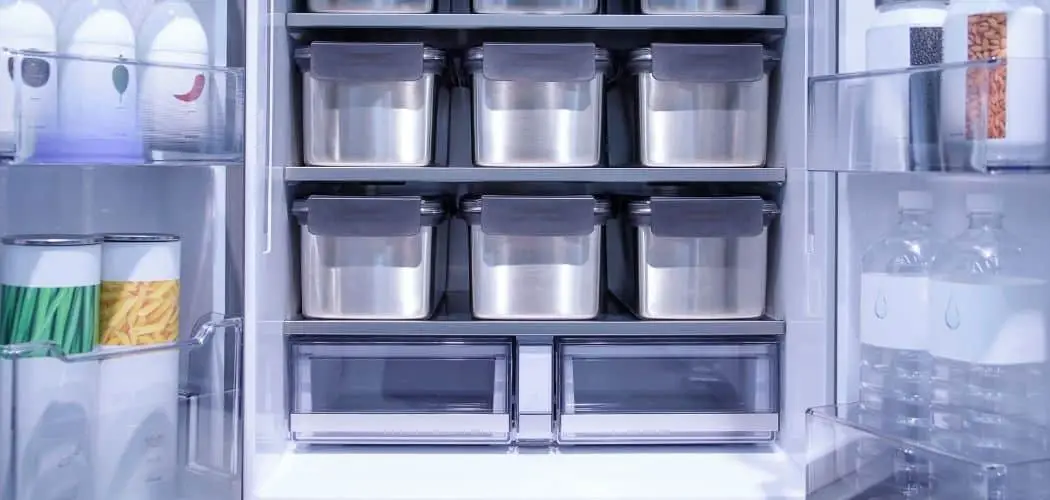Find out the information you need about What Size Generator To Run A Refrigerator And Deep Freezer in this article, all summarized clearly by us.

Sizing a Generator to Power a Refrigerator and Deep Freezer
In our modern world, refrigerators and deep freezers have become indispensable appliances in our kitchens. They keep our food fresh, preventing spoilage and preserving the nutritional value of our meals. However, in the event of a power outage, these appliances can quickly become a liability, potentially leading to food spoilage and significant financial losses. That’s where generators come in, providing a reliable source of backup power to keep your essential appliances running.
When it comes to sizing a generator for a refrigerator and deep freezer, it’s crucial to consider the specific power requirements of each appliance. Refrigerators typically have a lower power consumption compared to deep freezers, which require more energy to maintain the freezing temperatures. To determine the appropriate generator size, you’ll need to calculate the total wattage of both appliances.
Determining the Wattage Requirements
The wattage of a refrigerator or deep freezer can be found on the appliance’s铭牌。This label usually provides two wattage ratings: running wattage and starting wattage. Running wattage represents the continuous power consumption of the appliance, while starting wattage is the higher power required to start the compressor motor.
For a refrigerator, the starting wattage is typically 2-3 times higher than the running wattage. For a deep freezer, the starting wattage can be 3-5 times higher than the running wattage. To calculate the total wattage required for both appliances, add their respective running wattages and starting wattages.
Choosing the Right Generator Size
Once you have calculated the total wattage requirements, you can select a generator that meets or exceeds this power demand. It’s always advisable to choose a generator with a capacity slightly higher than the calculated wattage to ensure sufficient power for both appliances to operate efficiently.
For example, if your refrigerator has a running wattage of 500W and a starting wattage of 1000W, and your deep freezer has a running wattage of 700W and a starting wattage of 1500W, the total wattage requirement would be: (500W + 700W) + (1000W + 1500W) = 3700W. In this case, a generator with a capacity of 4000W or higher would be appropriate.
Considerations for Generator Use
When using a generator to power a refrigerator and deep freezer, there are a few important considerations to keep in mind:
- Proper Ventilation: Generators produce exhaust fumes, so ensure adequate ventilation around the unit to prevent carbon monoxide buildup.
- Safe Connection: Use heavy-duty extension cords designed for outdoor use and connect them securely to the generator and appliances. Avoid overloading the cords to prevent overheating and potential fire hazards.
- Regular Maintenance: Follow the manufacturer’s instructions for regular maintenance of the generator, including oil changes and spark plug replacement.
- Transfer Switch: Consider installing a transfer switch to safely connect the generator to your home’s electrical system, allowing for automatic power transfer in the event of an outage.
- Fuel Supply: Ensure you have an adequate supply of fuel to power the generator for the desired duration. Keep extra fuel on hand in case of extended power outages.
Frequently Asked Questions
Q: Can I run both my refrigerator and deep freezer on the same generator?
A: Yes, as long as the generator has sufficient capacity to handle the combined wattage requirements of both appliances. Refer to the instructions in the article to calculate the total wattage and select an appropriate generator.
Q: How long can a generator power my refrigerator and deep freezer?
A: The runtime of a generator depends on the size of its fuel tank and the fuel consumption of the appliances connected. For a rough estimate, divide the generator’s fuel tank capacity by the total wattage of the appliances. For example, a generator with a 5-gallon fuel tank and a total wattage requirement of 3700W would have an approximate runtime of 5 hours.
Q: What type of generator is best for powering a refrigerator and deep freezer?
A: Inverter generators are generally quieter and provide cleaner power compared to traditional generators, making them a good choice for sensitive electronics such as refrigerators and freezers. Look for an inverter generator with a wattage capacity that meets or exceeds the calculated wattage requirements.
Conclusion
Sizing a generator for a refrigerator and deep freezer is essential to ensure the proper functioning of these appliances during power outages. By following the steps outlined in this article, you can calculate the wattage requirements, select the right generator size, and take necessary precautions for safe and efficient operation. Remember, having a reliable backup power source can provide peace of mind and protect your food supply in the event of an emergency.
Are you interested in further exploring the topic of generator sizing and backup power solutions?

Image: everydaysurvivalism.com
An article about What Size Generator To Run A Refrigerator And Deep Freezer has been read by you. Thank you for visiting our website. We hope you benefit from What Size Generator To Run A Refrigerator And Deep Freezer.